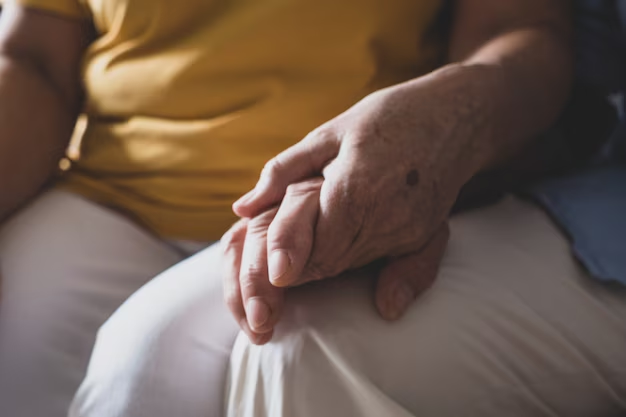Your Guide to Is Parkinson's Contagious
What You Get:
Free Guide
Free, helpful information about Parkinsons FAQ and related Is Parkinson's Contagious topics.
Helpful Information
Get clear and easy-to-understand details about Is Parkinson's Contagious topics and resources.
Personalized Offers
Answer a few optional questions to receive offers or information related to Parkinsons FAQ. The survey is optional and not required to access your free guide.
Is Parkinson’s Disease Contagious? Here’s What You Need to Know
Imagine waking up one day to find that tasks you once took for granted, like tying your shoes or writing a simple note, have become formidable challenges. This is the reality for many living with Parkinson’s disease, a progressive disorder of the nervous system. Naturally, when facing this complex condition, one burning question might arise: Is Parkinson’s disease contagious?
Understanding Parkinson’s Disease
Let's be clear—Parkinson’s disease is not contagious. You cannot catch it like you would a cold or the flu. It is a chronic and progressive neurological disorder that predominantly affects movement, including tremors, stiffness, and difficulty with balance and coordination. The root cause is primarily related to the loss of dopamine-producing neurons in a specific area of the brain, known as the substantia nigra. While experts continue to research the exact cause, genetic mutations and environmental factors are believed to play significant roles.
Dispelling Myths and Misunderstandings
Despite the scientific evidence, myths about the contagiousness of Parkinson’s persist, largely due to its mysterious nature and the complexities of its symptoms. It’s crucial to debunk these myths, not only to reduce stigma but also to encourage understanding and support for those who live with the disease.
Financial and Emotional Support for Parkinson’s Patients
Recognizing the reality that Parkinson’s isn't contagious leads to exploring how individuals and families can manage the condition. Beyond medical treatment, living with Parkinson’s demands substantial emotional and financial resilience. This brings to light the critical need for support systems. Let’s look into some avenues that can provide aid:
Government Aid Programs: Programs like Social Security Disability Insurance (SSDI) can offer financial relief to individuals who are unable to work due to the progression of Parkinson’s. Additionally, the Medicare program provides essential healthcare coverage that can help mitigate medical costs.
Non-Profit Organizations: Numerous organizations offer assistance ranging from financial grants to educational resources. The Parkinson’s Foundation, for instance, provides a vast array of services and information aimed at improving the quality of life for patients and caregivers alike.
Tax Relief Options: There are medical expense deductions available that can be claimed on your taxes, potentially reducing the financial burden on Parkinson’s patients and their families.
Debt Relief and Credit Solutions: Agencies can assist in restructuring debt, enabling families to better manage their finances amidst the challenges of dealing with a long-term illness.
Community Support Networks: Local and virtual support groups can provide emotional solace and valuable advice, creating a community of shared experiences and support.
Educational Opportunities and Grants
Escalating costs for caregiving and lifestyle adjustments can severely impact an affected family’s budget. Exploring educational grants and scholarships for family members can ease financial stress, ensuring that education goals remain attainable even as the family adjusts to new challenges. Many institutions offer scholarships specifically for individuals impacted by neurological conditions.
By equipping yourself with the correct information and exploring available resources, it’s possible to alleviate some of the burdens that come with navigating life with Parkinson’s. While the disease may present numerous challenges, being informed can empower you to make decisions that enhance quality of life for you and your loved ones.
Quick Aid Reference 📝
🏛 Government Programs:
- Social Security Disability Insurance (SSDI)
- Medicare
🌱 Non-Profit Support:
- Parkinson’s Foundation
- Michael J. Fox Foundation
💸 Financial Assistance:
- Medical expense tax deductions
- Debt restructuring services
🎓 Educational Grants:
- Scholarships for families impacted by Parkinson's
🤝 Community Aid:
- Support groups (local & online)
Staying informed acts as your first line of defense against the unpredictable terrain of Parkinson’s. While the journey may be tough, remember, help is always within reach.
What You Get:
Free Parkinsons FAQ Guide
Free, helpful information about Is Parkinson's Contagious and related resources.

Helpful Information
Get clear, easy-to-understand details about Is Parkinson's Contagious topics.

Optional Personalized Offers
Answer a few optional questions to see offers or information related to Parkinsons FAQ. Participation is not required to get your free guide.


Discover More
- Are There Environmental Causes Of Parkinsons
- Can Alcohol Cause Parkinson's
- Can Concussions Cause Parkinson's
- Can Concussions Cause Parkinson's Disease
- Can Dogs Get Parkinson's Disease
- Can Dogs Get Parkinsons
- Can Dogs Have Parkinson's
- Can Dogs Have Parkinson's Disease
- Can Females Get Parkinson Disease
- Can Head Trauma Cause Parkinson's
